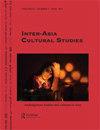Internet as an ideology: nationalistic discourses, and multiple subject positions of Chinese internet workers
IF 0.4
4区 社会学
Q4 ANTHROPOLOGY
引用次数: 1
Abstract
ABSTRACT Ideology works. This article examines how the Internet as a capital actor has become a nationalist ideology in China. Disclosing how nationalism serves to facilitate the expansion of China-based Internet platforms in the age of informational capitalism, we directly confront the Chinese Internet as an ideology apparatus that works to fulfill a dual logic of capital and territorial power. This article contributes to the study of three types of Chinese Internet workers: programmers, white-collar employees (excluding programmers), and assembly-line workers, and focuses on how nationalist discourses are created, which enthrall but at the same time are questioned by different workers who help fabricate nationalism as well as challenge it. We conceptualize topos of threat and referential strategy of collectivization as cultural and media tactics, driven by the nationalistic sentiments that form part of the “common sense” of Chinese users. We further analyze the multiple subject positions of Chinese Internet workers into hegemonic position, negotiated position, and oppositional position to discover the complexity of labor subjectivity which may create discrepancy or sometimes even challenge the Chinese Internet as an ideology. This study sheds light on how subject positions could disrupt a homogenous process of merging nationalism with populist sentiments, a conservative ideology that is prevalent in today’s China.作为意识形态的互联网:中国互联网工作者的民族主义话语与多元主体立场
意识形态起作用。本文考察了互联网作为资本行动者如何在中国成为一种民族主义意识形态。揭示民族主义如何在信息资本主义时代促进中国互联网平台的扩张,我们直接面对中国互联网作为一种意识形态机器,致力于实现资本和领土权力的双重逻辑。本文致力于研究三种类型的中国互联网工作者:程序员、白领员工(不包括程序员)和流水线工人,并关注民族主义话语是如何被创造出来的,这些话语吸引了不同的工人,但同时也受到了不同的工人的质疑,这些工人帮助制造民族主义,也挑战民族主义。我们将威胁话题和集体化的参考策略概念化为文化和媒体策略,由构成中国用户“常识”一部分的民族主义情绪驱动。我们进一步将中国互联网工作者的多重主体地位分析为霸权地位、协商地位和对立地位,以发现劳动主体性的复杂性,这种复杂性可能产生差异,有时甚至挑战中国互联网作为一种意识形态。这项研究揭示了主体立场如何破坏民族主义与民粹主义情绪融合的同质过程,民粹主义是当今中国盛行的一种保守意识形态。
本文章由计算机程序翻译,如有差异,请以英文原文为准。
求助全文
约1分钟内获得全文
求助全文
来源期刊

Inter-Asia Cultural Studies
Multiple-
CiteScore
0.90
自引率
20.00%
发文量
22
期刊介绍:
The cultural question is among the most important yet difficult subjects facing inter-Asia today. Throughout the 20th century, worldwide competition over capital, colonial history, and the Cold War has jeopardized interactions among cultures. Globalization of technology, regionalization of economy and the end of the Cold War have opened up a unique opportunity for cultural exchanges to take place. In response to global cultural changes, cultural studies has emerged internationally as an energetic field of scholarship. Inter-Asia Cultural Studies gives a long overdue voice, throughout the global intellectual community, to those concerned with inter-Asia processes.
 求助内容:
求助内容: 应助结果提醒方式:
应助结果提醒方式:


